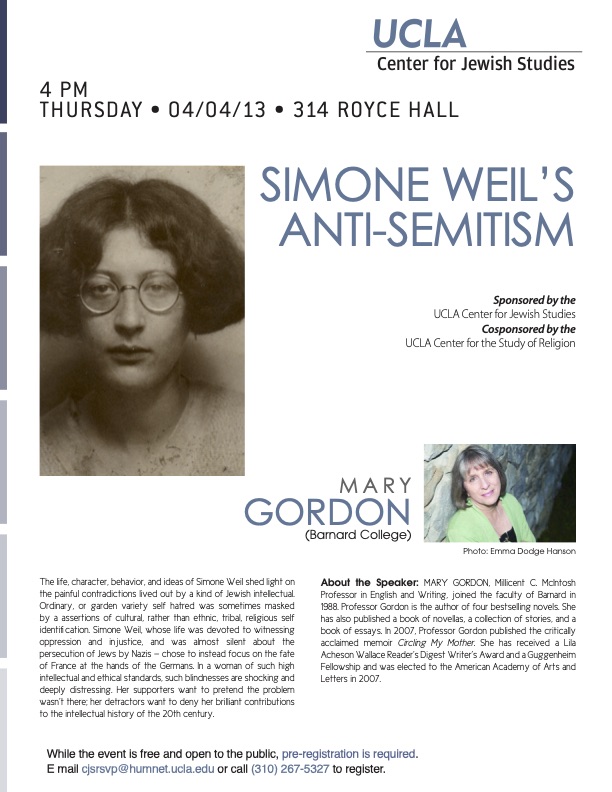
The life, character, behavior, and ideas of Simone Weil shed light on the painful contradictions lived out by a kind of Jewish intellectual. Ordinary, or garden variety self hatred was sometimes masked by a assertions of cultural, rather than ethnic, tribal, religious self identification. Simone Weil, whose life was devoted to witnessing oppression and injustice, and was almost silent about the persecution of Jews by Nazis — chose to instead focus on the fate of France at the hands of the Germans. In a woman of such high intellectual and ethical standards, such blindnesses are shocking and deeply distressing. Her supporters want to pretend the problem wasn’t there; her detractors want to deny her brilliant contributions to the intellectual history of the 20th century.
About the Speaker: MARY GORDON, Millicent C. McIntosh Professor in English and Writing, joined the faculty of Barnard in 1988. Professor Gordon is the author of four bestselling novels. She has also published a book of novellas, a collection of stories, and a book of essays. In 2007, Professor Gordon published the critically acclaimed memoir Circling My Mother. She has received a Lila Acheson Wallace Reader’s Digest Writer’s Award and a Guggenheim Fellowship and was elected to the American Academy of Arts and Letters in 2007.